How to cite this page Comment citer cette page
Items
has type is exactly
depicted
-
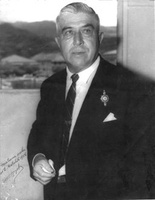 a Oopa Tetuaapua, Pouvana'a Tahitian politician and founder of the French Polynesian independence movement.
a Oopa Tetuaapua, Pouvana'a Tahitian politician and founder of the French Polynesian independence movement. -
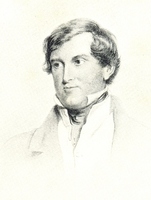 Acland, Thomas Dyke, 10th Baronet British politician and baronet. Acland was a supporter of the anti-slavery movement in Britain and was friends with William Wilberforce (1759-1833) and Hannah More (1745-1833). He also had links to Samuel Ajayi Crowther (c. 1809-91), who was the the first African Anglican bishop of West Africa. Acland's third son, Charles Richard Dyke Acland (1793-1828), was captain of HMS Helicon between 1825 and 1828, which made visits to the East African coastline. The Acland family's broad connections to global and imperial histories are the subject of ongoing research by the National Trust and partners.
Acland, Thomas Dyke, 10th Baronet British politician and baronet. Acland was a supporter of the anti-slavery movement in Britain and was friends with William Wilberforce (1759-1833) and Hannah More (1745-1833). He also had links to Samuel Ajayi Crowther (c. 1809-91), who was the the first African Anglican bishop of West Africa. Acland's third son, Charles Richard Dyke Acland (1793-1828), was captain of HMS Helicon between 1825 and 1828, which made visits to the East African coastline. The Acland family's broad connections to global and imperial histories are the subject of ongoing research by the National Trust and partners. -
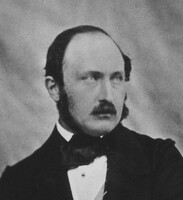 Albert Prince consort of the United Kingdom (1840-1861)
Albert Prince consort of the United Kingdom (1840-1861) -
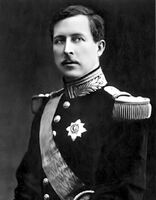 Albert I King of the Belgians (1909-1934)
Albert I King of the Belgians (1909-1934) -
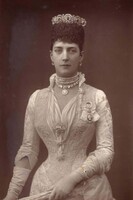 Alexandra of Denmark Queen consort of the United Kingdom (1901-1910)
Alexandra of Denmark Queen consort of the United Kingdom (1901-1910) -
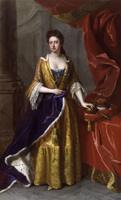 Anne Queen of Britain and Ireland from 1702 to 1714
Anne Queen of Britain and Ireland from 1702 to 1714 -
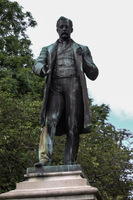 Ascroft, Robert British politician and lawyer of the nineteenth century. Ascroft was a Lancashire-based solicitor and member of the Conservative party; he served as Member of Parliament for the constituency of Oldham. In 1899, Winston Churchill considered joining him as the second Conservative candidate from Oldham; the plan was discarded because of Ascroft’s death. Ascroft acted as a legal advisor to the Association of Operative Cotton Spinners, which was founded in 1870. While Ascroft’s role in securing workers’ rights has been remembered positively in Britain, the British cotton textile industry itself had deep colonial associations. In the late nineteenth century, the British cotton textile industry was supplied with raw materials from India and Egypt. In 1895, for instance, Ascroft actively opposed Indian import duties in Parliament, which could have offered some tariff protection to the new Indian industries. This became politically controversial in India as politicians, such as Dadabhai Naoroji and R. C. Dutt, complained of the ‘deindustrialisation’ of the country and its use as a source of cheap raw materials as well as a captive market for mass-produced goods. From the 1920s, M.K. Gandhi led campaigns of boycotting Lancashire-produced goods and a promotion of Swadeshi or Indian-made goods for Indian consumers.
Ascroft, Robert British politician and lawyer of the nineteenth century. Ascroft was a Lancashire-based solicitor and member of the Conservative party; he served as Member of Parliament for the constituency of Oldham. In 1899, Winston Churchill considered joining him as the second Conservative candidate from Oldham; the plan was discarded because of Ascroft’s death. Ascroft acted as a legal advisor to the Association of Operative Cotton Spinners, which was founded in 1870. While Ascroft’s role in securing workers’ rights has been remembered positively in Britain, the British cotton textile industry itself had deep colonial associations. In the late nineteenth century, the British cotton textile industry was supplied with raw materials from India and Egypt. In 1895, for instance, Ascroft actively opposed Indian import duties in Parliament, which could have offered some tariff protection to the new Indian industries. This became politically controversial in India as politicians, such as Dadabhai Naoroji and R. C. Dutt, complained of the ‘deindustrialisation’ of the country and its use as a source of cheap raw materials as well as a captive market for mass-produced goods. From the 1920s, M.K. Gandhi led campaigns of boycotting Lancashire-produced goods and a promotion of Swadeshi or Indian-made goods for Indian consumers. -
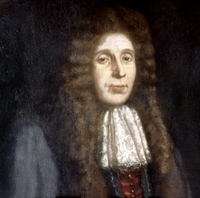 Aske, Robert English philanthropist, merchant, haberdasher, and investor in the slave-trading Royal African Company in the seventeenth century.
Aske, Robert English philanthropist, merchant, haberdasher, and investor in the slave-trading Royal African Company in the seventeenth century. -
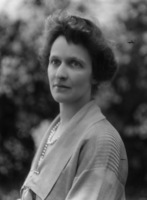 Astor, Nancy First woman seated as a Member of Parliament (MP) for Plymouth Sutton from 1919 to 1945. Astor was the daughter of American railroad industrialist Chiswell Langhorne (1843-1919), whose family owned enslaved people and plantations in Lynchburg, Virginia prior to the American Civil War. Langhorne briefly fought in the Confederate Army and later worked in tobacco auctioneering during the war. Astor's mother Nancy Witcher Keene (1848-1903) also came from a slave-owning family. Born in 1879, fourteen years after the end of the war and the abolition of slavery, Nancy spent her teenage years in an environment firmly shaped by the legacies of American slavery at the “Mirador” family home in Virginia in the 1890s. The Langhornes were one of many white American families whose domestic life rested upon the bedrock of white supremacy. According to her biographer Christopher Sykes, all of the Langhorne’s servants at Mirador were black and many had been formerly enslaved. While Nancy romantically reminisced about these black servants being “part of the family”, there were clear racial and class tensions within this family environment, with Sykes noting a number of conflicts between her father Chiswell and the family’s domestic workforce. A controversial figure both during her life and in historical memory, Astor has also attracted critical scrutiny for her antisemitism and alleged sympathies with Nazi Germany.
Astor, Nancy First woman seated as a Member of Parliament (MP) for Plymouth Sutton from 1919 to 1945. Astor was the daughter of American railroad industrialist Chiswell Langhorne (1843-1919), whose family owned enslaved people and plantations in Lynchburg, Virginia prior to the American Civil War. Langhorne briefly fought in the Confederate Army and later worked in tobacco auctioneering during the war. Astor's mother Nancy Witcher Keene (1848-1903) also came from a slave-owning family. Born in 1879, fourteen years after the end of the war and the abolition of slavery, Nancy spent her teenage years in an environment firmly shaped by the legacies of American slavery at the “Mirador” family home in Virginia in the 1890s. The Langhornes were one of many white American families whose domestic life rested upon the bedrock of white supremacy. According to her biographer Christopher Sykes, all of the Langhorne’s servants at Mirador were black and many had been formerly enslaved. While Nancy romantically reminisced about these black servants being “part of the family”, there were clear racial and class tensions within this family environment, with Sykes noting a number of conflicts between her father Chiswell and the family’s domestic workforce. A controversial figure both during her life and in historical memory, Astor has also attracted critical scrutiny for her antisemitism and alleged sympathies with Nazi Germany. -
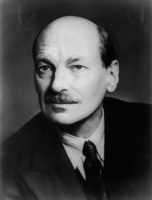 Attlee, Clement Major British statesman and Labour Party politician in the twentieth century. In 1927, Attlee was one of the members of the Simon Commission sent to India to examine the possibilities of self-rule in Britain's largest colony. During the Second World War, Attlee was Deputy Prime Minister of the United Kingdom from 1942 to 1945, as well as briefly serving as the Secretary of State for Dominion Affairs from 1942 to 1943. As Prime Minister of the United Kingdom from 1945 to 1951, Attlee oversaw Britain's postwar transition and the beginning of decolonisation. Major events included the arrival of the Windrush generation who migrated from the Caribbean to Britain (1945-1960), the Partition of India (1947), the independence of Myanmar and Sri Lanka (1948), Britain's withdrawal from Palestine (1948), and the Malayan Emergency (1948-1960).
Attlee, Clement Major British statesman and Labour Party politician in the twentieth century. In 1927, Attlee was one of the members of the Simon Commission sent to India to examine the possibilities of self-rule in Britain's largest colony. During the Second World War, Attlee was Deputy Prime Minister of the United Kingdom from 1942 to 1945, as well as briefly serving as the Secretary of State for Dominion Affairs from 1942 to 1943. As Prime Minister of the United Kingdom from 1945 to 1951, Attlee oversaw Britain's postwar transition and the beginning of decolonisation. Major events included the arrival of the Windrush generation who migrated from the Caribbean to Britain (1945-1960), the Partition of India (1947), the independence of Myanmar and Sri Lanka (1948), Britain's withdrawal from Palestine (1948), and the Malayan Emergency (1948-1960). -
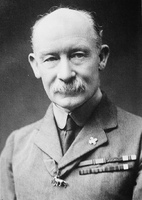 Baden-Powell, Robert British Army officer and founder of the worldwide Scout Movement. Baden-Powell fought in a number of colonial conflicts in the late nineteenth and early twentieth centuries, including the Anglo-Ashanti wars, the Second Matabele War, and the Second Boer War. During the Matabele War, Baden-Powell came under legal scrutiny when he was accused of illegally approving the execution of Uwini, the Matabele chief, who was being held as a prisoner-of-war by the British. Baden-Powell's conduct in the Second Boer War has also attracted controversy over his role in the deaths of Africans during the Siege of Mafeking, many of whom were denied rations. Baden-Powell's military experience from these colonial wars later inspired his work Scouting for Boys (1908), which lay the foundation stone for the worldwide Scout Movement. The movement played an important part in the imperial education of young boys and girls in twentieth-century Britain, and was shaped by contemporary debates around the role of race, gender, class, militarism, nationhood, and empire in constructing British citizenship.
Baden-Powell, Robert British Army officer and founder of the worldwide Scout Movement. Baden-Powell fought in a number of colonial conflicts in the late nineteenth and early twentieth centuries, including the Anglo-Ashanti wars, the Second Matabele War, and the Second Boer War. During the Matabele War, Baden-Powell came under legal scrutiny when he was accused of illegally approving the execution of Uwini, the Matabele chief, who was being held as a prisoner-of-war by the British. Baden-Powell's conduct in the Second Boer War has also attracted controversy over his role in the deaths of Africans during the Siege of Mafeking, many of whom were denied rations. Baden-Powell's military experience from these colonial wars later inspired his work Scouting for Boys (1908), which lay the foundation stone for the worldwide Scout Movement. The movement played an important part in the imperial education of young boys and girls in twentieth-century Britain, and was shaped by contemporary debates around the role of race, gender, class, militarism, nationhood, and empire in constructing British citizenship. -
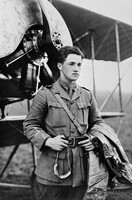 Ball, Albert British aviator killed in WWI.
Ball, Albert British aviator killed in WWI. -
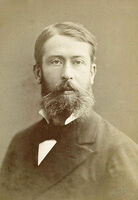 Ballay, Noël Governor of French Guinea (1891-1900), Governor of Senegal (1900-1902), and Governor General of French West Africa (1900-1902).
Ballay, Noël Governor of French Guinea (1891-1900), Governor of Senegal (1900-1902), and Governor General of French West Africa (1900-1902). -
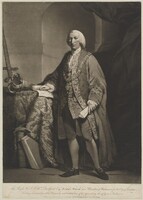 Beckford, William British-Jamaican slave-owner and politician in the eighteenth century. Born into a wealthy colonial family in Jamaica, Beckford owned a huge number of enslaved people as well as considerable amount of land in the colony. In Beckford's estate probate in 1774, for example, he was listed as the owner of a total of 1,356 enslaved people in Jamaica. Beckford's colonial wealth enabled him to become Lord Mayor of London in 1762 and 1769.
Beckford, William British-Jamaican slave-owner and politician in the eighteenth century. Born into a wealthy colonial family in Jamaica, Beckford owned a huge number of enslaved people as well as considerable amount of land in the colony. In Beckford's estate probate in 1774, for example, he was listed as the owner of a total of 1,356 enslaved people in Jamaica. Beckford's colonial wealth enabled him to become Lord Mayor of London in 1762 and 1769. -
Belain d'Esnambuc, Pierre French colonial trader who led France's early attempts to colonise the Caribbean and introduce slavery into the region. Belain d'Esnambuc established the first permanent French colony, Saint-Pierre, in Martinique in 1635.
-
Benson, George Elliott British colonial soldier who fought in Africa in the late nineteenth century. He died in October 1901 during the Second Boer War.
-
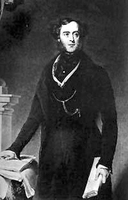 Bentinck, George British politician in the nineteenth century. The Bentinck family had a number of ties to the British Empire. George Bentinck's uncle, Lord William Bentinck (1774–1839), served as Governor of Madras, Governor-General of the Presidency of Fort William, and Governor-General in India during the first half of the nineteenth century. Lord William Bentinck also made an unsuccessful claim for slavery compensation as a trustee. George Bentinck's great-great-grandfather, Henry Bentinck, 1st Duke of Portland (1682-1726) had been a slave-owner and colonial administrator in Jamaica, where he served as Governor-General from 1721 to 1726.
Bentinck, George British politician in the nineteenth century. The Bentinck family had a number of ties to the British Empire. George Bentinck's uncle, Lord William Bentinck (1774–1839), served as Governor of Madras, Governor-General of the Presidency of Fort William, and Governor-General in India during the first half of the nineteenth century. Lord William Bentinck also made an unsuccessful claim for slavery compensation as a trustee. George Bentinck's great-great-grandfather, Henry Bentinck, 1st Duke of Portland (1682-1726) had been a slave-owner and colonial administrator in Jamaica, where he served as Governor-General from 1721 to 1726. -
Bernès-Cambos, François French colonial soldier who died during the Rif War in Morocco in 1925.
-
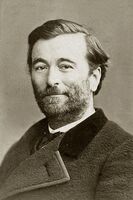 Bert, Paul Trained as a physician and a physiologist, he divided his time between his research on respiration and his political career. In 1872, he was elected as deputy by Auxerre. He became Minister of Public Instruction in the government of Léon Gambetta of whom he was a fervent supporter and drafted the laws establishing free, compulsory and secular education with Jules Ferry. He also wrote several school textbooks. He travelled to Algeria in the 1850s and was a member of the Paris Anthropology Society, whose racist theories he endorsed. In the wake of Gambetta’s policy of colonial expansion, he became the first civilian Governor General of Indochina, where he died.
Bert, Paul Trained as a physician and a physiologist, he divided his time between his research on respiration and his political career. In 1872, he was elected as deputy by Auxerre. He became Minister of Public Instruction in the government of Léon Gambetta of whom he was a fervent supporter and drafted the laws establishing free, compulsory and secular education with Jules Ferry. He also wrote several school textbooks. He travelled to Algeria in the 1850s and was a member of the Paris Anthropology Society, whose racist theories he endorsed. In the wake of Gambetta’s policy of colonial expansion, he became the first civilian Governor General of Indochina, where he died. -
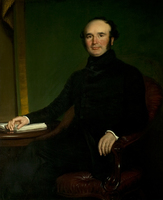 Biggs, John Hosier and political reformer in the nineteenth century. The firm John Biggs and Sons was one of the largest hosiery firms in early nineteenth century Leicester, and exported goods to North America and Australia.
Biggs, John Hosier and political reformer in the nineteenth century. The firm John Biggs and Sons was one of the largest hosiery firms in early nineteenth century Leicester, and exported goods to North America and Australia. -
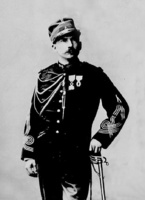 Binger, Louis-Gustave French colonial administrator, explorer, and military officer. Binger was the first Governor of Côte d'Ivoire (1893-1895) and Director of the French Ministry of Colonies (1898-1908).
Binger, Louis-Gustave French colonial administrator, explorer, and military officer. Binger was the first Governor of Côte d'Ivoire (1893-1895) and Director of the French Ministry of Colonies (1898-1908). -
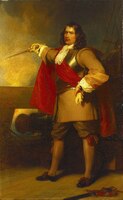 Blake, Robert Naval officer and military commander of the Commonwealth of England in the seventeenth century.
Blake, Robert Naval officer and military commander of the Commonwealth of England in the seventeenth century. -
Blandan, Pierre Hippolyte French colonial soldier who fought and died in Algeria in the nineteenth century.
-
Bobillot, Jules French soldier who fought and died in the Sino-French war (1884-1885).
-
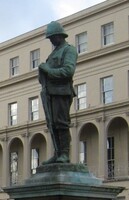 Boer War soldier
Boer War soldier -
Boissière, Jules French colonial writer, journalist, soldier and diplomat in Vietnam in the late nineteenth century.
-
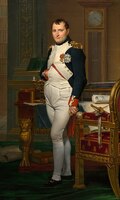 Bonaparte, Napoléon Born in Corsica into a noble family, Napoleon was trained from 1779 to 1785 at the military schools of Brienne-le-Château and Paris. On graduating, he joined an artillery regiment. He took part in the Revolutionary Wars, achieving the rank of general, and led the Italian and Egyptian campaigns from 1896 onwards. On the strength of the popularity he had acquired during his military campaigns, he organized a coup d'état on 18 Brumaire (November 9, 1799), taking command of the armies and initiating the drafting of a new constitution that allowed him to concentrate power. For political expediency and in response to demands from influential colonists in his entourage, Napoleon re-established slavery in the French colonies with the law of May 20, 1802. In 1804, he was crowned Emperor of the French.
Bonaparte, Napoléon Born in Corsica into a noble family, Napoleon was trained from 1779 to 1785 at the military schools of Brienne-le-Château and Paris. On graduating, he joined an artillery regiment. He took part in the Revolutionary Wars, achieving the rank of general, and led the Italian and Egyptian campaigns from 1896 onwards. On the strength of the popularity he had acquired during his military campaigns, he organized a coup d'état on 18 Brumaire (November 9, 1799), taking command of the armies and initiating the drafting of a new constitution that allowed him to concentrate power. For political expediency and in response to demands from influential colonists in his entourage, Napoleon re-established slavery in the French colonies with the law of May 20, 1802. In 1804, he was crowned Emperor of the French. -
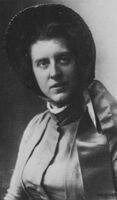 Booth, Catherine Co-founder of The Salvation Army
Booth, Catherine Co-founder of The Salvation Army -
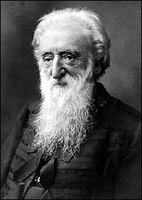 Booth, William Co-founder of The Salvation Army
Booth, William Co-founder of The Salvation Army -
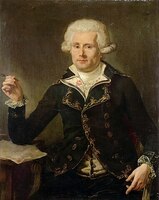 Bougainville, Louis Antoine French naval officer and writer. From 1766 to 1769, Bougainville made a circumnavigation of the globe, which he later recounted in Voyage au Tour du Monde (1771).
Bougainville, Louis Antoine French naval officer and writer. From 1766 to 1769, Bougainville made a circumnavigation of the globe, which he later recounted in Voyage au Tour du Monde (1771). -
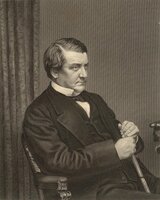 Bourke, Richard, 6th Earl of Mayo Chief Secretary for Ireland (1852, 1858–9, 1866–8) and 4th Viceroy and Governor-General of India (1869-1872)
Bourke, Richard, 6th Earl of Mayo Chief Secretary for Ireland (1852, 1858–9, 1866–8) and 4th Viceroy and Governor-General of India (1869-1872) -
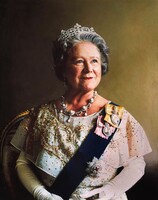 Bowes-Lyon, Elizabeth, The Queen Mother Queen of the United Kingdom and the Dominions of the British Commonwealth (1936-1952) and Empress consort of India (1936-1947)
Bowes-Lyon, Elizabeth, The Queen Mother Queen of the United Kingdom and the Dominions of the British Commonwealth (1936-1952) and Empress consort of India (1936-1947) -
Brétignère, Amédée French colonial explorer, geologist and planter in Côte d'Ivoire in the nineteenth century.
-
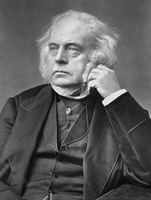 Bright, John British Radical and Liberal statesman in the nineteenth century.
Bright, John British Radical and Liberal statesman in the nineteenth century. -
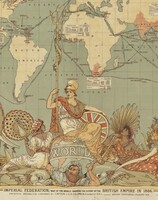 Britannia National personification of Britain, who appears as a helmeted female warrior holding a trident and shield
Britannia National personification of Britain, who appears as a helmeted female warrior holding a trident and shield -
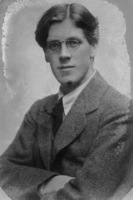 Brockway, Fenner British socialist politician, humanist and campaigner for a wide number of causes, including pacifism, nuclear disarmament, anti-imperialism, and racial justice. After the Second World War, Brockway established the Congress of Peoples Against Imperialism and was a member of the Movement for Colonial Freedom in the United Kingdom. Brockway was a leading figure in protesting the British government's conduct during the Mau Mau rebellion in Kenya (1952-1960).
Brockway, Fenner British socialist politician, humanist and campaigner for a wide number of causes, including pacifism, nuclear disarmament, anti-imperialism, and racial justice. After the Second World War, Brockway established the Congress of Peoples Against Imperialism and was a member of the Movement for Colonial Freedom in the United Kingdom. Brockway was a leading figure in protesting the British government's conduct during the Mau Mau rebellion in Kenya (1952-1960). -
Brosset, Diego French military officer who served in the two world wars, as well as in North Africa during the interwar period.
-
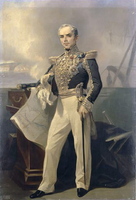 Bruat, Armand Joseph French naval officer and colonial administrator. Bruat served as Governor of the Marquesas Islands, Governor of French Oceania, and Governor of the Antilles in the nineteenth century.
Bruat, Armand Joseph French naval officer and colonial administrator. Bruat served as Governor of the Marquesas Islands, Governor of French Oceania, and Governor of the Antilles in the nineteenth century. -
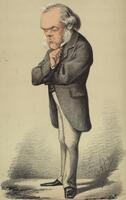 Bruce, Henry Austin British politician in the nineteenth century. Bruce was a leading figure in the National African Company and its successor the Royal Niger Company from 1882 to 1895, as well as the founder of what is now Cardiff University.
Bruce, Henry Austin British politician in the nineteenth century. Bruce was a leading figure in the National African Company and its successor the Royal Niger Company from 1882 to 1895, as well as the founder of what is now Cardiff University. -
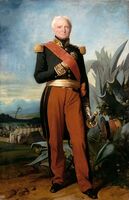 Bugeaud, Thomas Robert, marquis de la Piconnerie French military officer and colonial administrator. Bugeaud was Governor-General of Algeria from 1840 to 1847, where he led the colonial conquest with extreme brutality and violence against the civilian population.
Bugeaud, Thomas Robert, marquis de la Piconnerie French military officer and colonial administrator. Bugeaud was Governor-General of Algeria from 1840 to 1847, where he led the colonial conquest with extreme brutality and violence against the civilian population. -
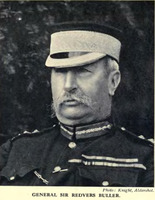 Buller, Redvers British army officer who fought in several colonial conflicts across the globe in the second half of the nineteenth-century, including China, Canada, West Africa, East Africa, and South Africa.
Buller, Redvers British army officer who fought in several colonial conflicts across the globe in the second half of the nineteenth-century, including China, Canada, West Africa, East Africa, and South Africa. -
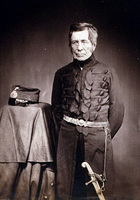 Burgoyne, John Fox British Army officer who fought in a number of nineteenth century conflicts, including the Alexandria expedition in 1807 and Battle of New Orleans in 1815.
Burgoyne, John Fox British Army officer who fought in a number of nineteenth century conflicts, including the Alexandria expedition in 1807 and Battle of New Orleans in 1815. -
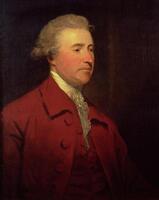 Burke, Edmund Anglo-Irish statesman, political theorist and conservative philosopher in the eighteenth century.
Burke, Edmund Anglo-Irish statesman, political theorist and conservative philosopher in the eighteenth century. -
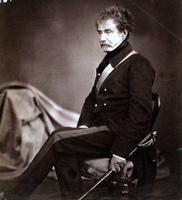 Campbell, Colin, 1st Baron Clyde British Army officer and Commander-in-Chief of India from 1857 to 1861. Campbell fought in several colonial conflicts in the Caribbean and Asia during the nineteenth century, and was involved in the suppression of the Demerara slave rebellion in 1823 and the Indian rebellion in 1857.
Campbell, Colin, 1st Baron Clyde British Army officer and Commander-in-Chief of India from 1857 to 1861. Campbell fought in several colonial conflicts in the Caribbean and Asia during the nineteenth century, and was involved in the suppression of the Demerara slave rebellion in 1823 and the Indian rebellion in 1857. -
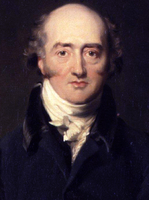 Canning, George British Prime Minister, statesman, and pro-slavery politician in the late eighteenth and early nineteenth centuries. Canning was an important opponent of the abolition of slavery in the 1820s, and his views on the subject have been discussed at length by the historian Michael Taylor. As Member of Parliament for Liverpool between 1812 and 1823, one of his major political patrons had been the absentee Guyanese slave-owner and politician John Gladstone (1764-1851). Canning also enjoyed a close personal and political friendship with Charles Rose Ellis, Lord Seaford (1771-1845), who was a leading figure in the West India interest and an absentee Jamaican slave-owner. As Foreign Secretary and Leader of the House of Commons, Canning was responsible for thwarting Thomas Fowell Buxton's early efforts to introduce a plan for abolition in May 1823. His opposition to emancipation was often couched explicitly in ideas of racial inferiority: in a speech to the Commons on amelioration in March 1824, for instance, he argued 'In dealing with the n****, Sir, we must remember that we are dealing with a being possessing the form and strength of a man, but the intellect only of a child'.
Canning, George British Prime Minister, statesman, and pro-slavery politician in the late eighteenth and early nineteenth centuries. Canning was an important opponent of the abolition of slavery in the 1820s, and his views on the subject have been discussed at length by the historian Michael Taylor. As Member of Parliament for Liverpool between 1812 and 1823, one of his major political patrons had been the absentee Guyanese slave-owner and politician John Gladstone (1764-1851). Canning also enjoyed a close personal and political friendship with Charles Rose Ellis, Lord Seaford (1771-1845), who was a leading figure in the West India interest and an absentee Jamaican slave-owner. As Foreign Secretary and Leader of the House of Commons, Canning was responsible for thwarting Thomas Fowell Buxton's early efforts to introduce a plan for abolition in May 1823. His opposition to emancipation was often couched explicitly in ideas of racial inferiority: in a speech to the Commons on amelioration in March 1824, for instance, he argued 'In dealing with the n****, Sir, we must remember that we are dealing with a being possessing the form and strength of a man, but the intellect only of a child'. -
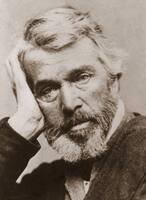 Carlyle, Thomas Scottish essayist, historian and philosopher (1795-1881). Carlyle's essay 'Occasional Discourse on the Negro Question', first published in 1849 and republished in 1853 with a new title, expounded a defence of slavery on the grounds of racial inferiority. He later led the Eyre Defence and Aid Fund to defend Governor John Eyre's violent repression of the Morant Bay Rebellion in Jamaica in 1865. Carlyle's thought had a wide-ranging influence both during and after his life. Other nineteenth-century proslavery intellectuals such as George Fitzhugh and John Mitchel, the latter of whom Carlyle met in the mid-1840s, claimed inspiration from his work.
Carlyle, Thomas Scottish essayist, historian and philosopher (1795-1881). Carlyle's essay 'Occasional Discourse on the Negro Question', first published in 1849 and republished in 1853 with a new title, expounded a defence of slavery on the grounds of racial inferiority. He later led the Eyre Defence and Aid Fund to defend Governor John Eyre's violent repression of the Morant Bay Rebellion in Jamaica in 1865. Carlyle's thought had a wide-ranging influence both during and after his life. Other nineteenth-century proslavery intellectuals such as George Fitzhugh and John Mitchel, the latter of whom Carlyle met in the mid-1840s, claimed inspiration from his work. -
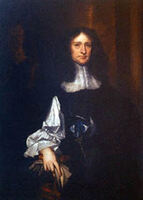 Carteret, George Royalist statesman in Jersey and one of the original lords proprietor of the British colony of Carolina. Carteret was one of the six founding members of the Company of Royal Adventurers into Africa, an early predecessor of the Royal African Company (RAC), and later became a consultant and investor in the RAC.
Carteret, George Royalist statesman in Jersey and one of the original lords proprietor of the British colony of Carolina. Carteret was one of the six founding members of the Company of Royal Adventurers into Africa, an early predecessor of the Royal African Company (RAC), and later became a consultant and investor in the RAC. -
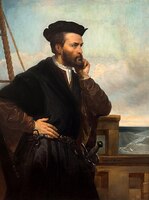 Cartier, Jacques French maritime explorer in Canada in the sixteenth century
Cartier, Jacques French maritime explorer in Canada in the sixteenth century -
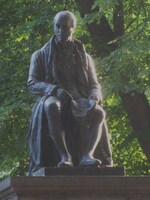 Cartwright, John English naval officer and political reformer in the eighteenth and early nineteenth centuries.
Cartwright, John English naval officer and political reformer in the eighteenth and early nineteenth centuries. -
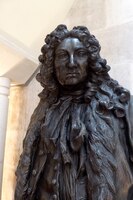 Cass, John English slave-trader, politician and philanthropist in the seventeenth and early eighteenth centuries. Cass was a member of the Court of Assistants of the Royal African Company from 1705 and made substantial investments in the Company. Cass also served as a Member of Parliament from 1710 to 1715.
Cass, John English slave-trader, politician and philanthropist in the seventeenth and early eighteenth centuries. Cass was a member of the Court of Assistants of the Royal African Company from 1705 and made substantial investments in the Company. Cass also served as a Member of Parliament from 1710 to 1715.